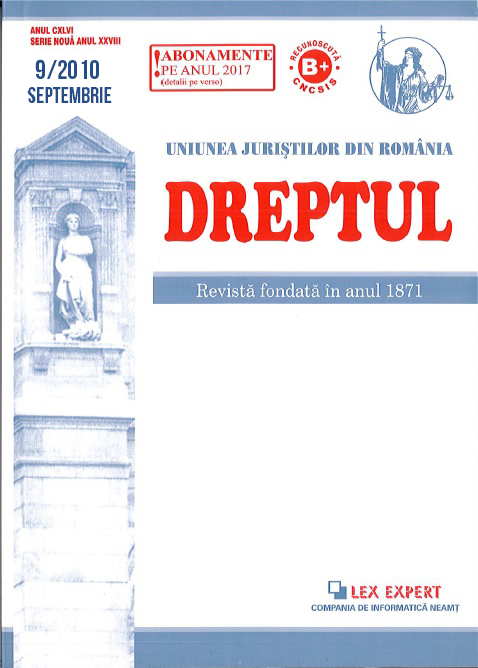In this study, the author analyzes, in the light of the Convention for the Protection of Human Rights and Fundamental Freedoms, the manner of observing the principle of impartiality of the
Romanian judges within the national procedures regarding the establishment and functioning of the associations and foundations. Within the introductory section, general elements regarding the freedom of peaceful assembly and association are presented, according to Article 11 of the Convention. Subsequently, the relevant provisions of the Government Ordinance No 26/2000 on
associations and foundations are emphasized. Their analysis, from the perspective of the civil side of Article 6 § 1 of the Convention for the Protection of Human Rights and Fundamental Freedoms,considers the minimum standard imposed on Romania by this treaty. After presenting the conventional reference provisions applicable at the level of the Member States of the Council of Europe, the author demonstrates the lack of a hermetic delimitation between the subjective impartiality and the objective impartiality of the national judge, in the analyzed hypothesis. At the same time, it is outlined the need to respect the role of neutral arbitrator of the court. Based on the rich case law of the European Court of Human Rights, the author manages to capture the shortcomings of the national regulation.
This study includes both a theoretical and practical debate on the obligations and responsibility of the Romanian state, according to the Convention, and a proposal de lege ferenda, in order to respect the principle of impartiality of judges. In relation to the large number of case files registered annually by courts of first instance, regarding the establishment and functioning of associations and foundations, the study is also an alarm signal, in order to avoid the responsibility of the Romanian state, according to the Convention for the Protection of Human Rights and Fundamental Freedoms.
ORDONANȚA GUVERNULUI NR. 26/2000 ÎNCALCĂ IMPARȚIALITATEA JUDECĂTORILOR
15.00lei


